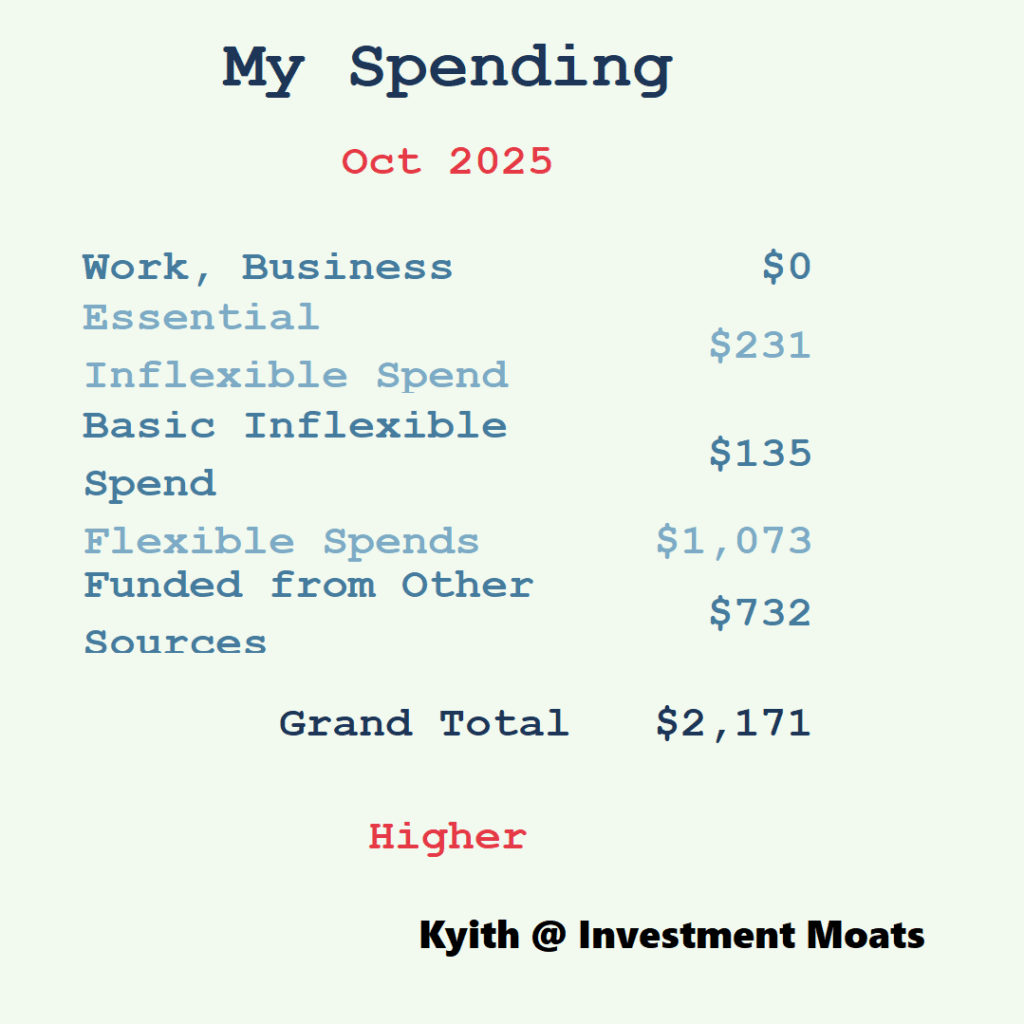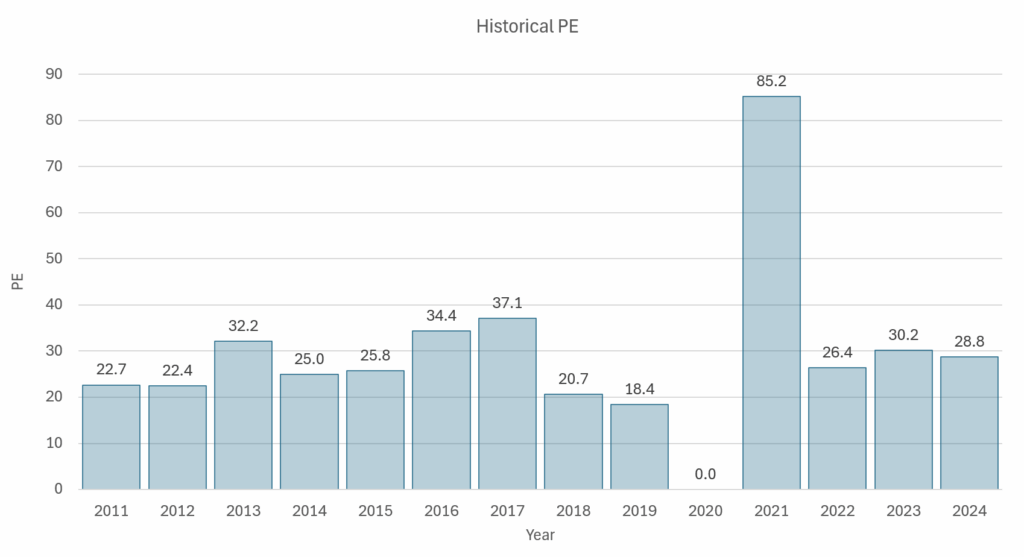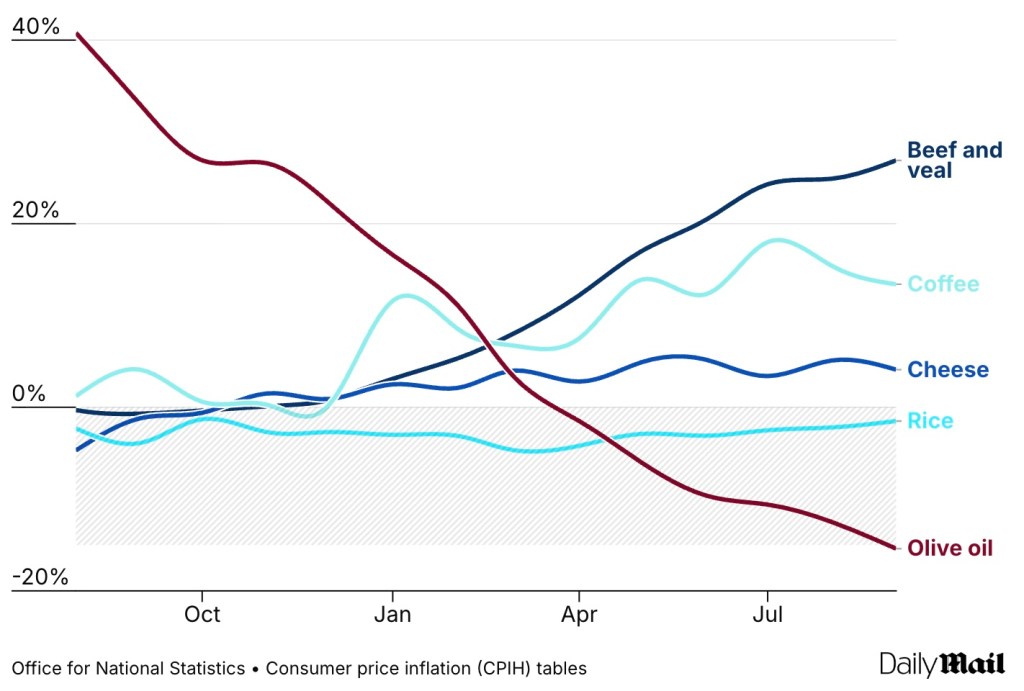Ray Dalio Drops a Bombshell on Real Estate – What Every Investor Needs to Know Before It’s Too Late
Ever find yourself scratching your head wondering if real estate is still the rock-solid investment it’s cracked up to be? Especially now, when the financial landscape feels as unpredictable as a roller coaster on a rainy day. That’s exactly the kind of head-scratcher Dave Meyer tackles in the latest episode of “On the Market.” He digs deep into some eye-opening warnings from none other than Ray Dalio — the hedge fund titan whose take on real estate might just flip what you thought you knew upside down. Dalio’s concerns aren’t just about market ups and downs; they hit on big-picture stuff like the ticking time bomb of national debt, long-term debt cycles, and how interest rates, taxes, and liquidity can make or break your portfolio. So, is real estate a fortress or a house of cards in today’s economy? Stick around as we unpack these heavy hitters, weigh the risks, and explore how you can hedge your bets — because your investment future might just depend on it.
Are current market conditions making real estate a risky investment? This episode of “On the Market” with Dave Meyer dives into the recent warnings from the investment icon Ray Dalio, who advises against real estate investments due to factors like interest rate sensitivity, ease of taxation, and illiquidity. Meyer explores the potential implications for real estate investors and unpacks Dalio’s unique perspective on the national debt and long-term debt cycles. How might these economic factors shape the housing market and mortgage rates in the coming months, and should real estate still be considered a stable asset amidst uncertainty? Discover the nuances of hedging risks and positioning your portfolio to weather potential economic storms.
Click here to listen on Apple Podcasts.
Listen to the Podcast Here
Read the Transcript Here
Dave:
The founder of the biggest hedge fund in the world just said that you shouldn’t buy real estate in this market. Is this just more noise, more people who just want to push stocks or crypto or whatever, or is investing legend? Ray Dalio onto something. How risky is it for real estate investors right now? Hey everyone, welcome to On the Market. Thank you all so much for being here today. I’m Dave Meyer and today I’m going to break down some recent warnings about the real estate investing landscape from one of the biggest names in finance and investing. Ray Dalio. Dalio has a pretty unique perspective, although he is retired now, he did manage the biggest hedge fund in the world and personally, I’ve paid a lot of attention to what Ray Dalio says, not necessarily because he is always right because of course no one is always right.
But Dalio has a pretty interesting perspective on the national debt, which is something I worry a lot about and I think it’s something that you all should hear as well. And in general, I just think that hedge funds and the way they operate offer us as real estate investors an interesting and different perspective than we normally get. As the name suggests, hedge funds exist to help investors hedge multiple asset classes, different currencies, different market cycles, not just to maximize their returns but also to protect against downside risk. And I am not trying to be some hedge fund stand. Sometimes they massively outperform the market. Sometimes they get stuff wrong and underperform the market, but I just think that their way of thinking about risk and upside is particularly important in the very uncertain economy that we find ourselves in today. So in today’s episode, we’re going to explore how hedge funds think about risk and opportunity, whether dalio’s, words of caution about real estate investing are worth heeding and what you should be doing with your own portfolio.
Let’s do it. So first up, let’s start with Ray Dalio’s recent comments. Again, Dalio is the former CEO of Bridgewater, the biggest hedge fund in the world, and he recently commented that he would not advise investing in real estate right now and he pointed to three reasons why he thinks that. First is that real estate investing is interest rate sensitive. Second, it’s easy to tax, and third, it’s nailed down, which makes it somewhat illiquid and honestly, you can’t really argue with any of those points. Real estate is super interest rate sensitive. That would be almost impossible to argue against. Second one, how easy it is to tax. I’m a little in the middle on this one. If you listen to a recent episode about property taxes, you know that it is hard to tax on a federal level, but it’s easy to tax on a state and local level and it is nailed down to the ground at least.
I certainly hope so for any properties that you all own. But these characteristics of real estate that they’re interest rate sensitive, it’s nailed down, it’s easy to tax. Those things have always been true about real estate. So why now? Why is Ray Dalio saying this in this economy to understand that you need to understand Dalio’s somewhat unique but very informed view of the world. He has written a few books about long-term debt cycles, how countries, yes, like the United States, similar countries in history have gone broke and how the world order according to him has been changing. He’s pretty prolific. He writes a lot of books. I’ve read several of them, so I think I can at least explain the high levels of his worldview. I want to point out, you may disagree with this, but Dalio is definitely a student of economic history and he does have some interesting ideas that I think are at least worth listening to.
So the background you really need to understand when you’re thinking about why he’s saying don’t invest in real estate, is that Ray Dalio is hyper-focused on debt. And I’m not talking about personal debt, although that is certainly a problem. It’s talking about national debts, empires, big countries and how much debt they take on because according to him, there are these sort of long-term debt cycles. We talk about short-term business cycles. Some people say it’s five years or seven years or nine years. What he’s talking about is these long-term multi-generational debt cycles that can make or sometimes destroy entire countries. He points to in many of the books I’ve read at things like the British Empire, the Dutch Empire, multiple Chinese empires and all of them follow this pattern of accumulating too much debt over the course of their empire, which ultimately when the deck gets too big, it destabilizes the country and the financial system and it causes a crisis to occur.
And when you look at the US and the patterns that have been going on here, not in the last few years, this is going back decades, but when you look at those patterns, Dalio thinks this is the path that we’re heading down. He believes that the United States has entered a sort of end stage of our debt cycle and that ultimately the United States is going to go into a financial crisis because we’ve just taken too much debt. Our debt has been growing continuously for 25 years. We’ve had a debt for way longer than that, but there was a point in time when Bill Clinton was president where we briefly ran a surplus, but this has been going on for decades. Both parties do it and to be honest, no one either party seems serious about getting it under control and he makes a lot of good points as to why this is a problem.
Right now, 17% of our national budgets, for every dollar you send in taxes, 17 cents of that is going towards paying down our national debt that is 17. That doesn’t go to things like our military or schools or roads or whatever. It’s just going to paying down your debt. That is a lot and frankly, Dalio thinks it’s going to get worse. He believes that there are these debt cycles that start to happen where basically you’re paying a lot of interest like we are right now. Then that means that you can’t maintain spending on essential programs because you’re using all of your budget to pay down your debt. So what do you do to keep up those essential programs? You take on more debt, you’re borrowing to pay debt. Basically that’s like taking out a credit card to pay off your old credit card, which everyone I think intuitively understands you probably shouldn’t be doing that because it’s unsustainable.
But there is a risk that the United States starts doing something like this. And again, this has happened, the British Empire, the Dutch Empire, some Chinese empire. So that’s why Dahlia thinks this could happen in the United States. Now I’m saying could, and I think Ray Dalio agrees that this is not a foregone conclusion because there are ways that you can avoid this. You could spend less money of course, and that could reduce the debt. You could have higher taxes and that could potentially reduce the debt or you could have some combination of those things. These are the commonly cited ways to control debt and those are frankly, I think the right ways to think about it. And I know different parties think differently about which one to focus more on spending less higher taxes, but in theory, any of those things could potentially work to reduce the debt.
But there is also this other option that doesn’t get talked about as much, which is what Ray Dalio is super concerned about and I think there is legitimacy to this concern. The third option is to just print more money. The United States is the world’s reserve currency. It is also a fiat currency, meaning that is not tied to any hard asset like gold. And this gives the United States a lot of ability to just go out there and print more money. A lot of people when they talk about the debt, right, they’re concerned that the US is going to go bankrupt because of our debt. To me that is super unlikely. Why would the United States default on its debt? Why would it go bankrupt when you could just print more money to pay that debt? And Dalio believes that the ease at which we can print more money is the most likely outcome for the US economy in the next couple of years.
Because when faced with doing unpopular things like raising taxes or cutting spending, what are politicians going to do? And this is not a knock or political on either party, but politicians largely self-interested people. So politicians, what are they going to do? They will probably opt for the easiest thing to do, which is print more money, which could actually even work on a short-term scale but creates this long-term very big problem for the United States. It works sometimes on a small scale, but at a large scale it messes everything up first and foremost. It can create inflation and as we know, this kind of stinks for everyone, but it can really mess up the bond market because no one wants to lend the government money for long periods of time if the currency they getaid in is devalued. And as we talk about on the show all the time, as goes, the bond market, so goes the mortgage market.
And so if printing more money pushes, borrowing costs up for the government, that’s going to push borrowing costs up for mortgage holders as well who wants to lend you money for 30 years when the dollars that they’re going to get repaid in in 5, 10, 15 or 30 years are worth a fraction in the future of what they are worth right now. So again, this can drive up mortgage rates. So Dalio is one of these things coming right? Because the debt is likely unsustainable. I get that there is modern monetary theory and that there is ways to grow out of this and there’s ways to do it without inflation. But what we have seen over the last couple of years, the evidence that we have right now is that an increasing proportion of our national budget is going towards paying interest. And if that continues, then one of these things is coming for us.
We’re either going to have higher taxes, which can hurt spending corporate profits hurt the stock market. There are consequences to that. There could be lower spending that also has consequences. It could reduce GDP wage growth, it could cut important economic programs like social security or we could have huge inflation, which is just a giant storm for the economy. Basically he sees one of these things happening unless we get our debt under control in the near future. So I’m explaining that because it is within this context that Ray Dalio is saying that you shouldn’t be investing in real estate. So there’s a lot of thought that has actually gone into this, but is what he’s saying actually makes sense? For example, if there is all this uncertainty, is a stable inflation hedge asset like real estate actually a liability or could it actually help you weather the storm more on that right after this break.
Welcome back to On the Market, I’m Dave Meyer. I’m here talking about recent commentary from Ray Dahlia about why you shouldn’t invest in real estate right now. Before the break I explained some context that Ray Dahlia thinks we’re going into basically a financial crisis and that’s one reason why he recommends not investing in real estate. But now let’s talk about whether or not he’s right. We need to decide first and foremost if we’re on board with the financial crisis line of thinking, if that’s where we’re actually at, then even if you do believe that, then we need to talk about is real estate a good or bad asset class to hold in that scenario? Of course people are going to feel differently and people use the word crisis really differently and I want to that there are currently very real economic issues facing us immediately.
We’re seeing signs that the labor market is showing some weakness. For example, American consumers are faltering. I personally don’t believe we are out of the woods as of right now in August of 2025 with inflation and we need to see where that’s heading in the next couple of months. Those are all problems, but none of those things would amount to what I would call a full blown crisis. Those are unfortunate things. Those are signs of a weaker economy, but it is not a financial crisis. What Dalio is talking about is a full on meltdown of the US dollar of bond yields going skyrocketing, actual runaway inflation, the kind of thing that can ruin a country for decades. Is that actually likely to me? I’ll just give you my opinion. You might disagree, but I think if debt continues on the path it’s on, yes, I don’t think it’s sustainable that we can continue to pay more and more of our national budget to debt every single year.
Are there ways that we can grow out of this? Sure. Are there ways that we can print more money without inflation? Some people seem to think so, but what I’m talking about is if our debt continues to be a greater and greater portion of our national budget, a greater and greater portion of our GDP, if that continues the way it’s going right now, I do think eventually something’s going to happen. There are consequences for taking on that much debt. But the thing about this is that we don’t know at what point it actually has been a crisis because people have been talking about the debt being a huge problem forever. So is the crisis in six months? Is it in a year? Is it five years, 10? Is it 30? No one actually knows In the meantime, does something else happen? Does the debt get under control?
Does the US grow its way out? Does the government reign in spending? Maybe they raise taxes. While I do think the current trajectory is scary and something worth considering, it is super hard to say with any specificity when it might actually come to a head. So personally, I have a hard time basing investing decisions on something that I have a really hard time forecasting out a timeframe for. But this is where we get to the second part of the show and why I think Ray Dalio’s perspective is so helpful here. I can’t make my investing decisions based on this, but do I want to position myself to hedge against it to protect myself in case something like this does happen? I kind of think so. I think that’s a really important thing for investors to think about and we’re going to get more into that in just a minute.
But for now, I want to just do a thought exercise and presume he’s right. You might not agree, but let’s just go down this line of thinking for a minute. Let’s presume he’s right about this. Let’s break down the things reasons he said why he would not invest in real estate. So first, it’s interest rate sensitive. That’s definitely true. And if you are worried about massive inflation in the coming years and I mean decades long, not just like 20 25, 20 26, I’m talking about long-term inflation, then yeah, interest rates are a concern. Our mortgage rates long-term could go up if this scenario actually unfolds. I do believe long-term interest rate risk is relatively high. It’s something I have real concerns about. I’ve talked about it multiple times on the show recently, but I think this is something that we need to keep in mind as we talk about hedging against some of this downside risk.
The next thing he said is talking about taxes. I get that idea, yes, you can levy a tax on property, but this one kind of seems more theoretical to me. It’s not something I’m personally super worried about right now. It could happen in the future, but again, this just falls under the category of speculation to me that I find it hard to invest against. Third, he says liquidity or specifically he said it’s nailed down, but his point is that it’s not a very liquid asset, which is true real estate is not as liquid as cash or as stocks or as bonds or commodities. You can usually sell those faster than you could real estate. So that is something to really think about. But we also have to remember that Ray Dalio is talking about this as a hedge fund manager. This is someone who trades foreign currencies who has done this in the past, who buys gold, who buys oil futures, who buys power plants.
So he is thinking about moving his money out of the country into other currencies into completely different asset classes. And maybe that does make sense for hedge fund manager. Maybe there are some hedges that make sense for someone like Ray Dalio to do against a potential crisis. But perhaps this isn’t something that the average American, the average member of the BiggerPockets community is realistically going to do. Are you going to sell a property and then move into some foreign currency or into cryptocurrency maybe. But as real estate investors, I think we have to approach this sort of from different vantage points, but overall, I think they’re good points. If a crisis like this happens, a lot of asset classes are going to be impacted so many of them, it’s going to be hard to avoid it and there will be implications for real estate if this full on financial crisis happens.
So those are good points, but there are actually three things I wanted to call out. First and foremost, fixed debt in residential real estate. Yes, real estate is interest rate sensitive. That’s something you need to be aware of, but if you fix your debt, it does limit your downside. Higher long-term mortgage rates could weigh on prices, but if you lock in your debt, your ability to pay your mortgage is unlikely to be negatively impacted even in a financial crisis. Maybe if we have unemployment and double digit unemployment, that might impact you. But the interest rate sensitive piece, if you have fixed rate residential debt I don’t think is as dramatic as he’s pointing out because he’s probably mostly talking about commercial real estate and not residential real estate. The second thing, which I’m surprised didn’t come up honestly, is that being leveraged, having debt can actually be beneficial in an inflationary environment because typically in an inflationary asset, prices tend to go up, but if you hold fixed rate debt like we just talked about, that means that you’re still making the same payments but the price of your asset is going up and your biggest expense, which is your debt is staying the same.
So being in an inflationary environment when you have leveraged assets can actually work out okay, at least usually keep pace with inflation actually can be beneficial and in some cases. And then lastly, I think that the other thing that’s missing here is that in an inflationary environment, rents can and often do keep pace with inflation as well. So your income, again, assuming there’s not just massive unemployment rates, but your income in terms of what rent you should be able to charge will also tend to keep pace with inflation, which I’m not saying there’s no risk here, but is another sort of just counterpoint to Ray Dahlia’s point that there are some benefits I believe of holding real estate in this type of environment. So I think he sort of missed those points, but for me the biggest takeaway thinking this through talking about this is about commercial real estate and variable rate debt.
We talk a lot about rates in the next year, three years, but we want, I assume most people here want to hold real estate investments for a long time. That is the game. So long-term interest rate risks can really matter to us if it is variable debt. Like I said just a couple of minutes before, yes, real estate is interest rate sensitive, particularly if your mortgage is resetting every three or five or seven years like it does in commercial real estate, which is why I think that if Ray Dalio is right and if you want to hedge against some of the things he’s concerned about and maybe you’re concerned about too, commercial real estate, particularly adjustable rate commercial real estate is going to be I think the riskiest asset class within real estate in this kind of environment. That’s my main takeaway. I’ve said it for months now, but I think there is just this increasing risk for variable rate debt.
And if you want to think like a hedge fund, if you want to think like the big guys and actually hedge against some of this downside risk, my advice to you is to focus on residential properties using residential debt. Personally, I am not going to stop buying real estate because there may be some financial crisis at some point in the future, but given the trends with our debt, I am thinking about choosing more real estate strategies that will protect me in case there is a crisis and fixed rate debt on cashflow producing assets is the way that I’m personally going to create that hedge. I just think hedging could be wise right now. It’s not something we talk about a lot on this show. I’m not saying get out of the game and act scared, but protecting yourself against downside risk is smart when there is a lot of uncertainty and people in this industry don’t talk about it a lot, we should. So after the break I’m going to talk a little bit more about managing risk in the current market environment. We’ll be right back.
Welcome back to On the Market. I’m Dave Meyer. Thank you all for being here. Earlier on the episode we’ve talked about Ray Dalio’s comments, but I want to shift to talking about the way that hedge funds think about risk and what we can learn about that as real estate investors. So hedge funds, what are they? They’re basically meant to control risk. They look to create really stable portfolios that can weather huge storms but still capitalize on upside. For me, that’s sort of the game. I love that approach to real estate investing. Make sure that you’re not going to lose your shirt, that you’re protected against risk, but put yourself in a position to still capitalize on so many of the benefits that real estate investing offers us. And that’s how I’ve always approached real estate personally, but it is how I am going to increasingly focus my portfolio in the next couple of years as we have this big macro, big picture uncertainty staring us in the face.
And because of that, I think we can learn something from the way hedge funds think. Hedge funds generally approach risk in a very systematic sort of data-driven. And what I think is most important maybe is portfolio based way. They’re thinking about this not on an individual property, but across the entire portfolio. How do you manage risk? And they do this in a couple of ways. First of all, they think about not just upside and benefits to deals, but also risk and volatility. They ask themselves not just like is this deal going to make money, but how volatile are the returns and what is the downside? And this is what I mean when I’m always blabbering on the show about unquote risk adjusted returns. You can’t just look at the potential upside of an investment. You have to consider what could possibly go wrong and you have to weigh those two things.
Just as an example, right? Imagine you get a deal that offers you a 15% cash on cash return, but there’s a 30% chance then any given year you go to zero, right? Would you take that over a deal where you get a 10% cash on cash return, but the chance of going to zero is only 2%? There’s no right answer. But as a real estate investor in this type of environment, you need to be thinking about returns in the context of the risk that you were taking on and that if it could teach you one lesson today, please listen to that. The second thing they think about a lot is just scenario and stress testing. What happens if mortgage rates go up? What happens if we see huge inflation? And I encourage you all to think about those things as well. I know it’s not the easiest thing to think about, which is why we have shows like this one where I hopefully help you all think through some of the implications of these things.
But I encourage you to use the information in episodes like this while you’re making investing decisions. Think about not just the benefit of getting a great duplex. What happens if mortgage rates go up? I know everyone thinks that mortgage rates are going to go down, but what happens if they go up? Is your portfolio protected? Because although that is not the most likely scenario right now, there’s a chance that happens and it’s worth thinking through different scenarios and how your portfolio and you individually would be impacted by some of these different scenarios. So don’t just look at the rosy side of any investment that you’re going to look at. Really dig into the downsides of potential deals and think through those before you make an investment. The third thing I think we need to learn from hedge funds is the idea of liquidity risk. That is one that Ray Dalio mentioned about being at nailed down.
I think this one is super important. Hedge funds are super attuned to how quickly they can sell an investment and raise cash if hits the fan, basically owning a stock can be sold instantly. That is really valuable versus real estate, which might have a ton of equity in it, but if market conditions change, you might not be able to sell that property and access that equity. So that is really important. Hedge funds care a lot about how their capital, their equity is trapped in certain deals. And this is something super relevant to real estate investors that you need to think about. How do you make sure that you have access to capital in an emergency? I personally recommend by having cash reserves for every property, or at least on a portfolio level, making sure that you have sufficient reserves to pay your mortgage for several months or to pay for a new roof if you need that.
So not over leveraging yourself, not investing every dollar that you have and making sure that you have some reserves to weather a storm is another really important thing for you to think about in this environment. And the fourth thing I just want to bring up is diversification. Now, this means different things to different people. Some people think diversifying means that you need to own stocks and bonds and real estate and crypto. That’s totally true for some people. I own all of those things. Some people believe that means that you need to diversify within real estate. I also do that. I own single family homes, I own multifamily homes, I invest in syndications, I do private lending because I think it’s important to diversify and I know that if you’re just buying your first deal, you might not be in a position to do that, but as you grow your portfolio, think about diversification.
I think that’s another really important thing. Hedge funds teach us how to do is if you spread your bets out into different places, there’s no single point of failure. If you invest all of your money into multifamily homes in Phoenix and that market goes down, there’s not much you can do about it. But if you invest across different asset classes across different countries, if you hedge essentially, then you are not prone to any one market cycle really taking you out and you can sort of live to see another day, which as an investor is the whole game, right? The longer you’re in the game, the better you’re going to do. And so you want to position yourself to make sure that no individual event is going to take you out and you get to keep compounding for as long as possible. Now, this might sound really obvious to you, but it is a little bit different, right?
From how we think about risk. Traditionally as real estate investors, when I talk to real estate investors about risk, the things that they mention are vacancy risk or tenant risk, totally true refinancing or variable rate debt. Those are risks as well. Local market conditions over leverage. These are the kinds of risks that we talk about as real estate investors and they do. They matter a lot. But in times like this, with all of this uncertainty, I really recommend spending some time learning about and thinking about portfolio level risk and adjusting your strategy based on that. So I’ll just reiterate a couple of lessons that I think we can learn here from hedge funds. Number one is portfolio thinking. Don’t just think about each property loan, consider how your assets behave together. Number two, stress test. Think about the downside. I know it’s not comfortable. No one wants to think about the downside and what happens if things go wrong, but I promise you, if you think that way, if things do go wrong, you’re going to be in a much better position to survive that.
Number three, liquidity awareness. Think about how much cash you have at any given time and how well you would be able to weather a storm if you have put yourself in that position. In scenarios like today. I actually think there’s a lot of upside in real estate right now and I’m planning to keep buying, but I do think it makes sense right now to keep that money in reserve because with the increased opportunity that I think is coming does come with more risk. That is basically how investing works. When there’s more opportunity, there’s more risk. When there’s lost opportunity, there’s less risk, and we’re entering that higher risk, higher opportunity time. So if you want to be in the best position to take advantage of those opportunity, you should also be hedging against that downside risk. So that’s it. That’s what I got for you guys today.
In summary, just wanted to provide in context the reason why really famous hedge fund investor, Ray Dalio thinks that buying real estate is not a good idea right now is because he has this view that their national debt is going to create a financial crisis. And if that happens, there will be negative implications for almost every asset class in every element of the economy, and real estate is unlikely to be spared from that. But I do believe that there are elements of holding real estate that could help hedge against that scenario. The fact that you are leveraged in an inflationary environment, if you have fixed rate debt, if your rents keep up with inflation, all of which are high probability bets in an inflationary environment, that could actually help you get through this type of environment. So I don’t think it makes sense to blanket say that you shouldn’t invest in real estate right now.
I think you need to invest in the right types of real estate that have the strong potential, not just to weather, but to succeed in a crisis scenario that could unfold. I do want to remind everyone that I’m not saying that the real estate market is going to crash, and although I personally have concerns about the national debt and where that is going, this is not necessarily a crisis that’s going to happen next week or in six months or even a year. Ray Dalio is just pointing to these long-term trends, but these trends exist over decades and generations. So it is super difficult if this happens at all to put a precise timeline on that. So what I’m doing myself is thinking about these things and making real estate investing decisions knowing that these things are potentially possible. But I’m not going to stop investing or play geared or sell all of my investments on the potential that this could happen at some point in the future.
To me, that has a lot of risk in itself. And so the best thing that you can do is to make really good risk adjusted bets on real estate. I’ve given you some examples of how you can start thinking about risk in that way, and this is definitely a topic we’re going to cover more on the market in the future because I just think this is super important for all of us to be thinking about and discussing as a community here on the market on a regular basis. Thank you all so much for listening to this episode. I’m Dave Meyer. See you next time.
Watch the Episode Here
Help Us Out!
Help us reach new listeners on iTunes by leaving us a rating and review! It takes just 30 seconds and instructions can be found here. Thanks! We really appreciate it!
Links from the Show
Interested in learning more about today’s sponsors or becoming a BiggerPockets partner yourself? Email [email protected].



















Post Comment